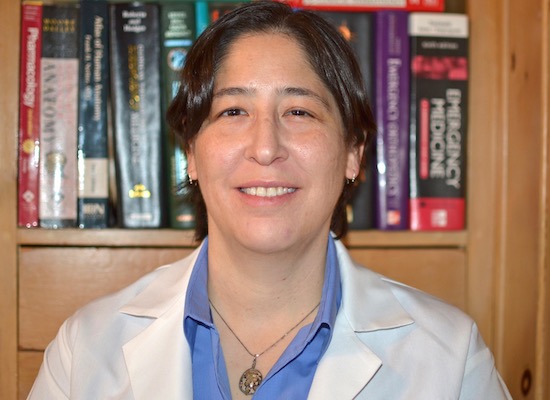Sara Lolar inducted as distinguished fellow of the American Academy of Physician Assistants
 Wayne State University Eugene Applebaum College of Pharmacy and Health Sciences Assistant Professor (Clinical) Sara Lolar was recently inducted as a distinguished fellow of the American Academy of Physician Assistants (AAPA). Less than 2% of the entire AAPA membership has earned the distinction.
Wayne State University Eugene Applebaum College of Pharmacy and Health Sciences Assistant Professor (Clinical) Sara Lolar was recently inducted as a distinguished fellow of the American Academy of Physician Assistants (AAPA). Less than 2% of the entire AAPA membership has earned the distinction.
Lolar is a faculty member in WSU Applebaum's Master of Science in Physician Assistant Studies degree program and has been a physician assistant in the Detroit Medical Center Emergency Department for nearly 14 years. She is a two-time graduate of Wayne State, earning her B.S. in biological sciences in 1995 and her M.S. in physician assistant studies in 2005. She is a member of the Pi Alpha National Honor Society for Physician Assistants and the Michigan Academy of Physician Assistants, in addition to the AAPA.
Founded in 1968, the AAPA represents a profession of approximately 108,500 certified PAs across all medical and surgical specialties in all 50 states, the District of Columbia, the U.S. territories and the uniformed services. The organization established the distinguished fellow program to recognize exceptional contributions of physician assistants (PAs) to the profession.
Distinguished fellows are AAPA fellows or sustaining members who have demonstrated outstanding dedication to their profession in at least three of the following areas:
- Distinction in medical practice, education, research or health care management
- Leadership in medicine and healthcare
- Professional involvement
- Commitment to lifelong learning
- Community service
"In the PA profession, the letters that come after your name mean a lot, and this year AAPA is proud to add 'DFAAPA' to the titles of 48 of our association’s most dedicated members, who have made their mark in the communities they serve and in the AAPA community as well," reads a news release on the AAPA website.
The 48 members honored this year come from across the nation. They earned the achievement from July 1, 2018, to May 31, 2019.
PAs are nationally certified and state-licensed to practice medicine in every setting and specialty. They diagnose and treat patients, order and interpret tests, assist in surgery and perform medical procedures, make rounds in hospitals and nursing homes and prescribe medications. A PA's role may also include patient education and research. PAs are educated at the graduate level through rigorous programs modeled on the medical school curriculum and are viewed as a solution to increasing access to healthcare for the increasing number of patients entering the system.
